The Best Ways to Control Clover Without Chemicals
By Innovation Grounds
Clover is a common lawn weed that some homeowners appreciate for its ability to attract pollinators, while others find it a nuisance disrupting the uniform green of their grass. If you’re looking for chemical-free ways to get rid of clover, you’re not alone. Many homeowners are turning to natural clover removal methods to keep their lawns healthy without harming the environment.
In this guide, we’ll explore the best ways to control clover without chemicals, including prevention techniques and effective organic solutions.
Why Avoid Chemicals for Clover Control?
Conventional herbicides often contain synthetic chemicals that can harm beneficial insects, pollute groundwater, and pose health risks to pets and children. Choosing organic lawn care techniques is not only safer but can also improve the long-term health of your soil and turf.
By adopting a more natural approach, you can maintain a beautiful, clover-free lawn while protecting your local ecosystem.
Improve Soil Fertility
Clover thrives in lawns with poor nitrogen levels. Because clover has the unique ability to “fix” nitrogen from the atmosphere, it often invades nutrient-deficient soil.
✔️ What to Do:
Apply organic compost to enrich your lawn’s soil.
Use slow-release organic fertilizers such as alfalfa meal or composted manure.
Perform a soil test to determine what nutrients are lacking and correct them accordingly.
Improving your soil’s nitrogen content makes it less favorable for clover growth and encourages the spread of grass instead.
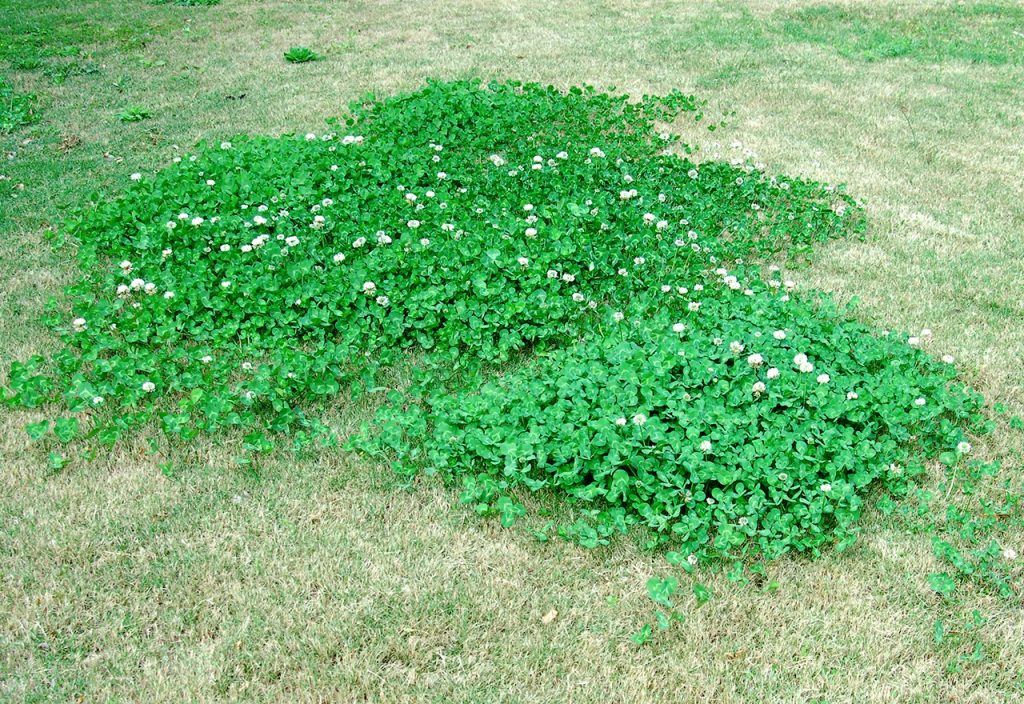
Mow High and Regularly
One of the easiest natural clover removal techniques is adjusting how you mow your lawn. Clover has shallow roots and a low-growing habit, which allows it to thrive in short grass.
✔️ What to Do:
Set your mower height to 3–4 inches.
Mow consistently during the growing season.
Avoid scalping your lawn, which gives clover space to grow.
Taller grass shades out clover and helps your turfgrass dominate.
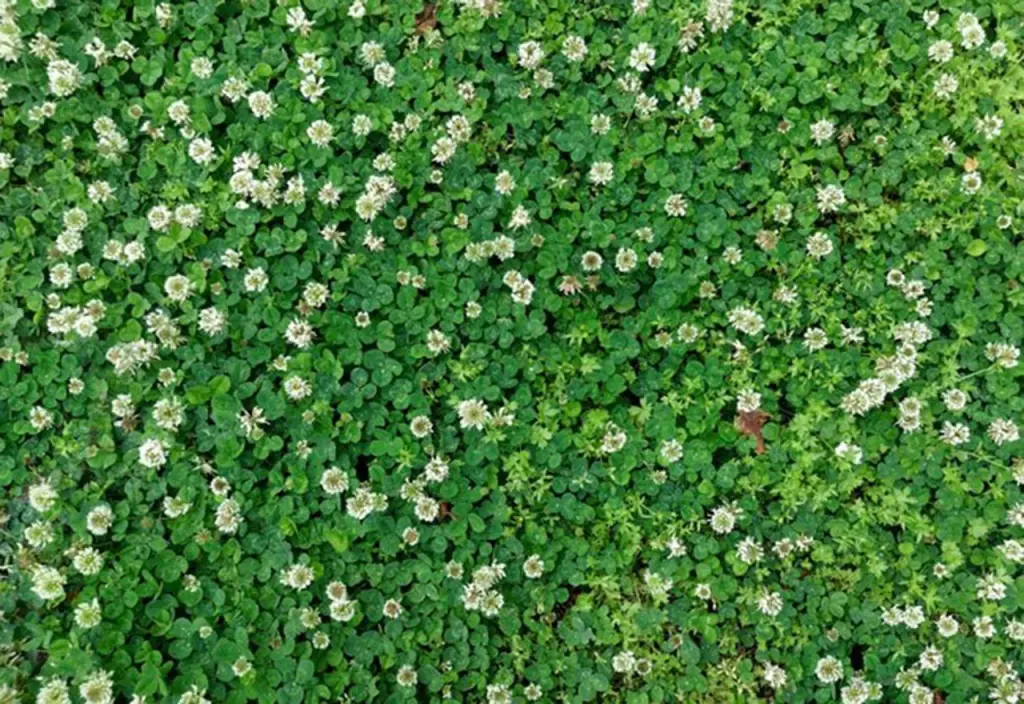
Overseed Bare Spots
Bare or thin areas in your lawn are prime spots for clover to take over. One of the best organic lawn care methods to combat clover is overseeding.
✔️ What to Do:
Choose a grass seed suited to your region and sunlight conditions.
Aerate the lawn before seeding for better seed-to-soil contact.
Water regularly until the new grass is established.
A dense lawn prevents clover and other weeds from gaining a foothold.

Water Deeply but Infrequently
Clover can tolerate drought better than most lawn grasses, giving it an advantage in dry conditions. However, a deep and infrequent watering schedule helps strengthen grass roots.
✔️ What to Do:
Water your lawn 1 inch per week, early in the morning.
Avoid shallow watering, which encourages shallow grass roots and weakens your turf.
Stronger, deeper grass roots help your lawn compete against clover naturally.
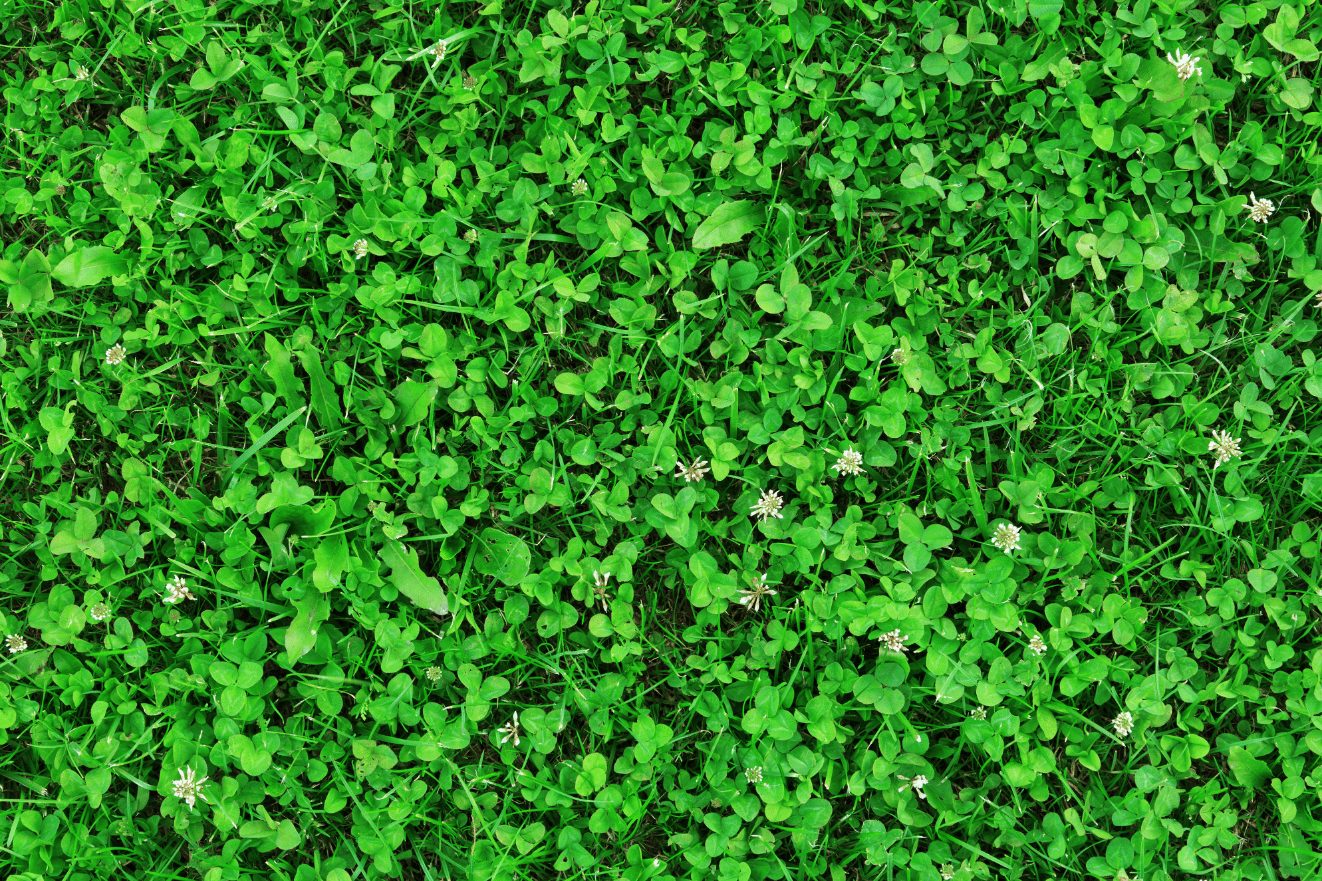
Hand-Pull or Use Organic Mulch
For small patches of clover, manual removal is still one of the most effective clover control methods. If the infestation is isolated, pull clover by hand when the soil is moist to remove the entire root system.
You can also use organic mulch like newspaper and compost to smother clover in garden beds or between plants.
✔️ What to Do:
Wear gloves and gently pull clover at the base.
Repeat regularly, especially after rain.
For larger patches, cover the area with cardboard or newspaper, then layer mulch on top.
This smothers the clover and deprives it of sunlight.
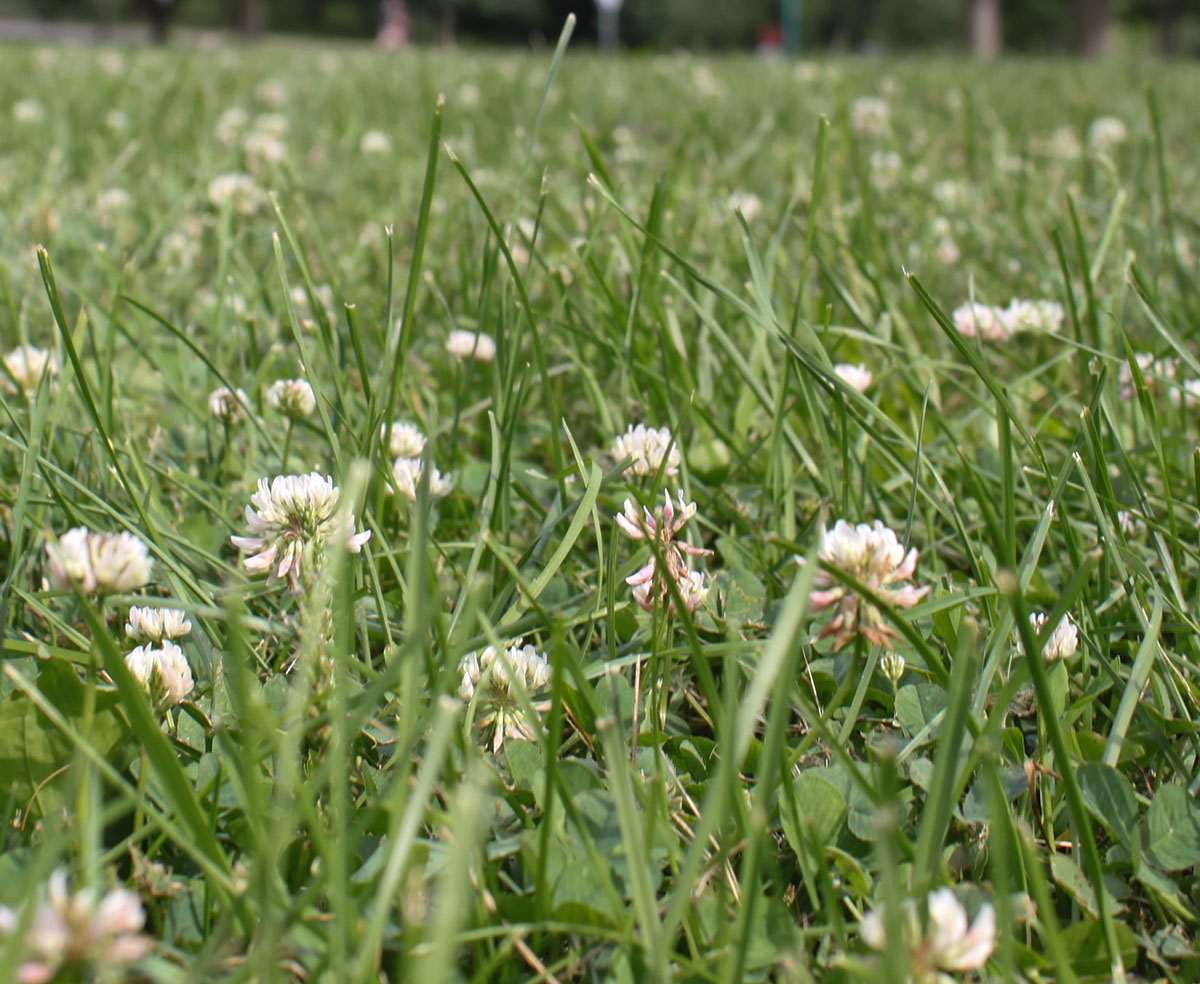
Try Natural Spot Treatments
For targeted control, several natural spot treatments can help eliminate clover without harming your grass.
Popular Options:
Vinegar solution (1 part vinegar, 1 part water, a few drops of dish soap)
Boiling water for clover in cracks or non-lawn areas
Corn gluten meal to prevent clover seeds from germinating
⚠️ Be cautious with vinegar or boiling water near desirable plants, as these methods are non-selective.
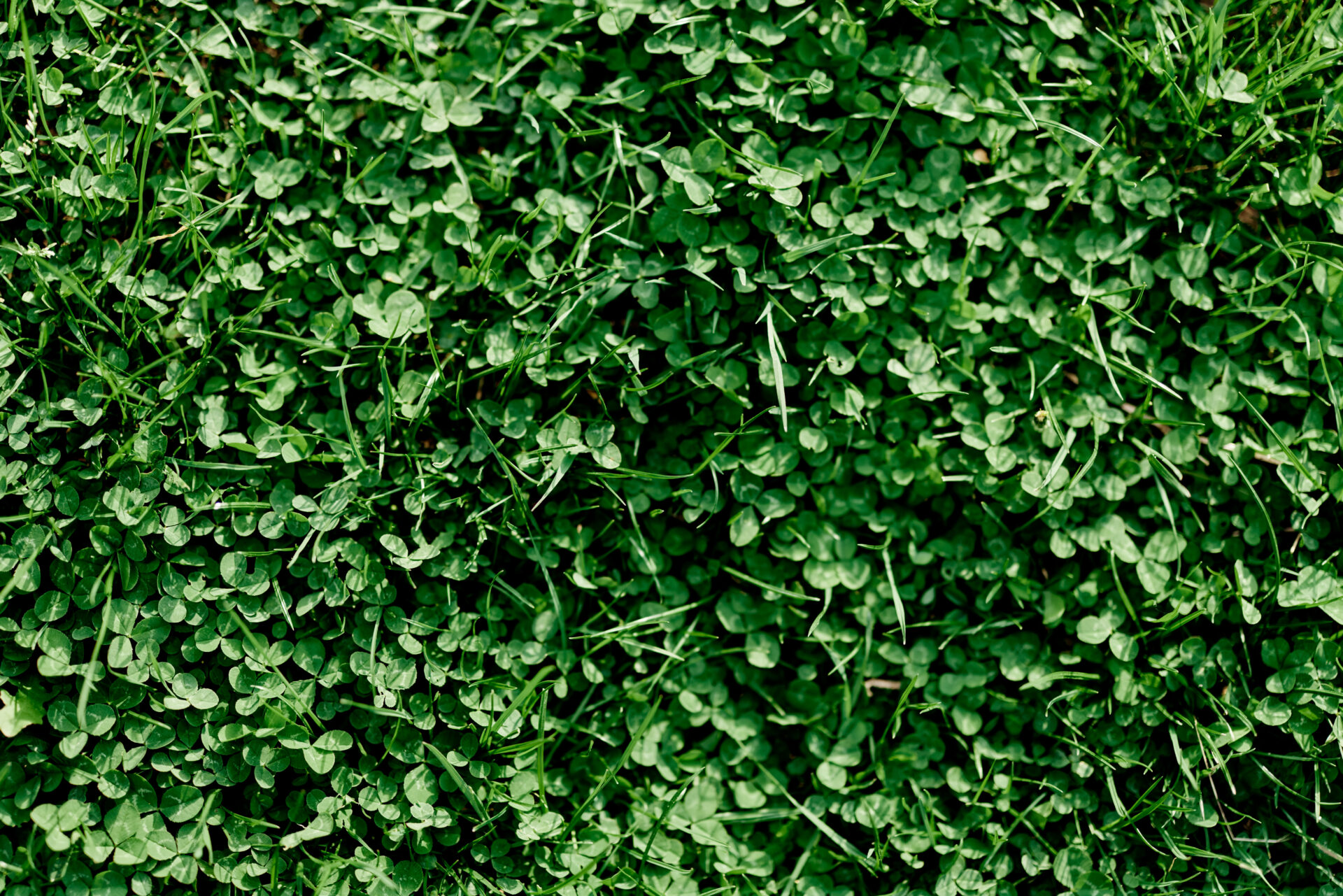
Bonus Tip: Encourage a Biodiverse Lawn
Sometimes the best way to control clover is to change your perspective. Clover can provide benefits such as nitrogen fixation, drought tolerance, and support for pollinators. Some homeowners choose to integrate clover into their lawn for a more resilient, eco-friendly yard.
If full eradication isn’t necessary, consider microclover varieties that blend with turfgrass while offering ecological benefits.
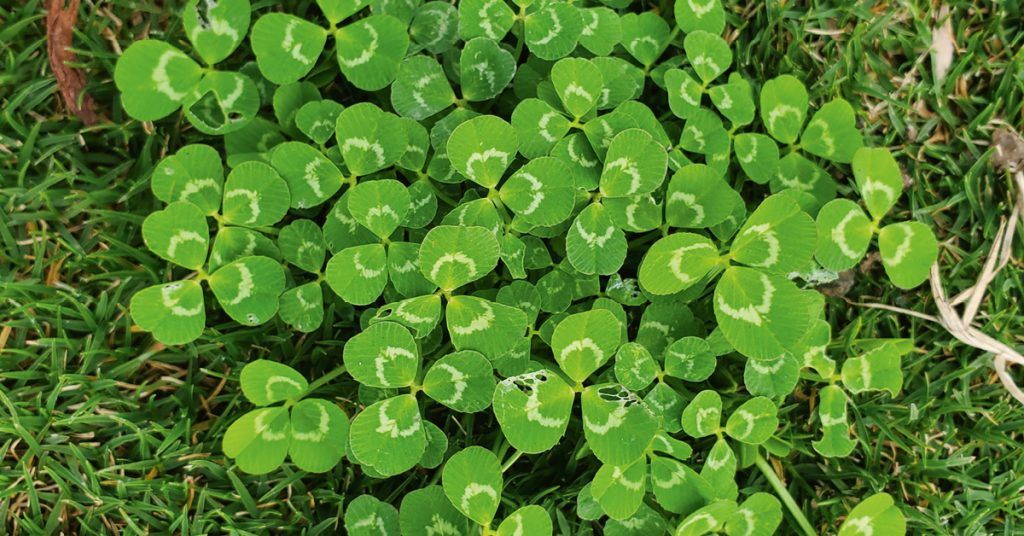
Go Green with Organic Clover Control
Controlling clover without chemicals doesn’t require expensive products or harmful sprays. With the right approach, you can achieve a lush, green lawn naturally. Whether you choose to improve your soil, mow smarter, or apply organic spot treatments, each method contributes to a healthier, more sustainable yard.
By using these clover control strategies, you not only remove unwanted weeds but also build a more vibrant and resilient landscape — all without a drop of synthetic herbicide.


